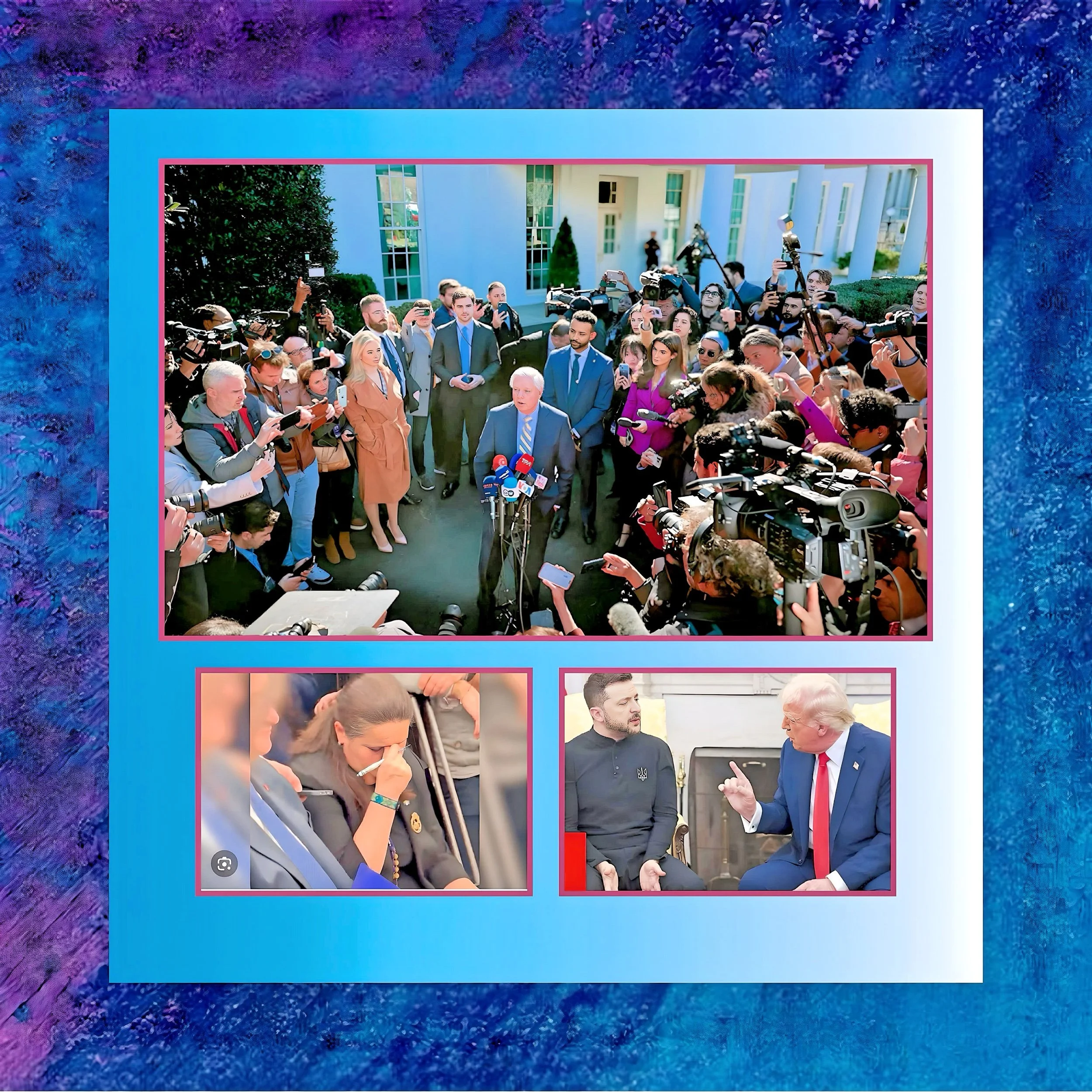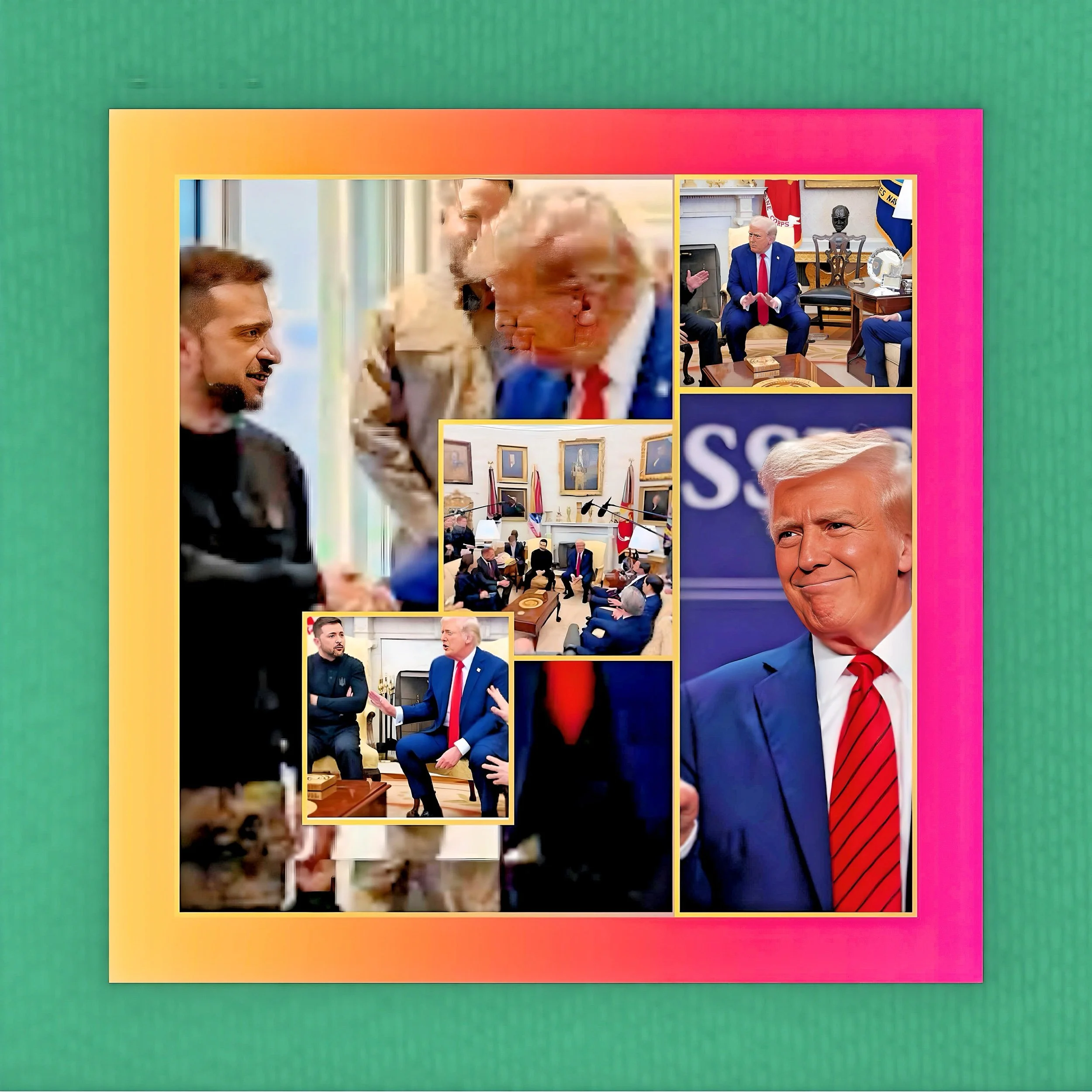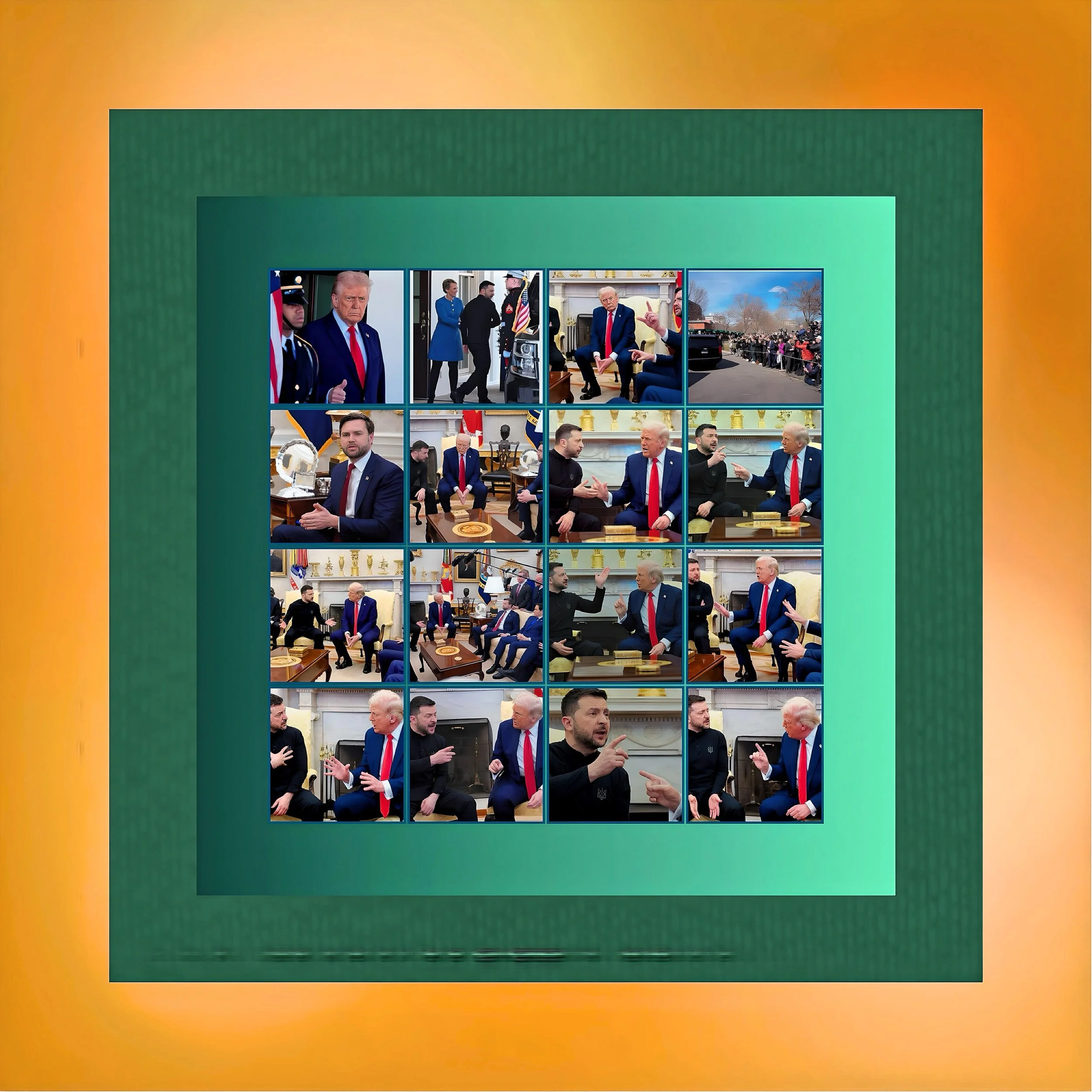Global Reactions to the Contentious Trump-Zelensky Meeting: A Diplomatic Inflection Point
Introduction
The explosive Oval Office meeting between former U.S. President Donald Trump and Ukrainian President Volodymyr Zelensky on February 28, 2025, has sent shockwaves through global geopolitics.
Characterized by heated exchanges over U.S. support for Ukraine and accusations of disrespect, the encounter has deepened existing fractures within the Republican Party, alarmed European allies, and emboldened critics of Western unity.
FAF analyzes the immediate fallout, the spectrum of international reactions, and the long-term implications for Ukraine’s war effort, transatlantic relations, and U.S. leadership on the world stage.
The Oval Office Confrontation
A Breakdown in Diplomacy
Escalation Over Diplomacy and Gratitude
Initially intended to finalize a strategic minerals agreement, the meeting unraveled when Vice President JD Vance criticized Zelensky’s approach to negotiations with Russia, asserting that “diplomacy, not military aid,” was the path forward.
Zelensky countered by questioning the viability of diplomacy with a regime that has repeatedly violated ceasefires, asking, “What kind of diplomacy, JD, are you speaking about?”. Trump interjected, accusing Zelensky of “gambling with World War III” and showing insufficient gratitude for U.S. assistance.
The confrontation reached its nadir when Trump abruptly terminated the meeting, later declaring on social media that Zelensky was “not ready for peace if America is involved.”
Symbolic Fallout
The Unraveling of U.S.-Ukraine Cooperation
Canceling the minerals deal—a cornerstone of Trump’s economic agenda in Eastern Europe—underscored the meeting’s immediate practical consequences.
Equally symbolic was the image of Ukrainian Ambassador Oksana Markarova burying her head in her hands during the exchange, which went viral as a metaphor for Ukraine’s precarious diplomatic position.
Zelensky’s subsequent refusal to apologize, stating, “I’m not sure we did something bad,” highlighted Kyiv’s determination to maintain its principled stance despite the risks.
Domestic U.S. Reactions
A Republican Party Divided
Hawkish Republicans’ Disillusionment
Prominent GOP figures traditionally supportive of Ukraine expressed dismay. Senator Lindsey Graham (R-S.C.) argued that Zelensky had “made it almost impossible to sell to the American people that he’s a good investment,” suggesting Ukraine might need new leadership.
Representative Mike Lawler (R-N.Y.) called the meeting “a disaster—especially for Ukraine,” lamenting that “the only winner today is Vladimir Putin”. These critiques reflect growing frustration within the Republican Party’s interventionist wing, which views Trump’s transactional approach as undermining decades of bipartisan foreign policy consensus.
Democratic Condemnation and Warnings
Democrats unanimously condemned Trump’s conduct, with Senate Minority Leader Chuck Schumer (D-N.Y.) accusing him and Vance of “doing Putin’s dirty work.” Representative Chuy García (D-Ill.) described the encounter as “truly shameful conduct that the world is seeing.” This partisan divide underscores the deepening polarization over U.S. global engagement, with Democrats framing support for Ukraine as a moral imperative tied to democratic values.
European Responses
Solidarity with Kyiv, Anxiety Over U.S. Leadership
Unified Support from Western Europe
European leaders swiftly reaffirmed commitments to Ukraine.
French President Emmanuel Macron emphasized that “Russia is the aggressor, and Ukraine is the aggressed,” defending Western sanctions and military aid as necessary to uphold European security.
German Chancellor Olaf Scholz and EU Commission President Ursula von der Leyen praised Zelensky’s “dignity.” They pledged continued support, with von der Leyen urging him to “be strong, brave, fearless.”
British Prime Minister Keir Starmer announced plans to host a European summit on Ukraine aid, positioning the UK as a stabilizing force amid U.S. unpredictability.
Calls for Strategic Autonomy
The meeting galvanized debates about European self-reliance. EU Foreign Policy Chief Kaja Kallas declared, “The free world needs a new leader,” arguing that Europe must assume greater responsibility for its defense.
Italian Prime Minister Giorgia Meloni echoed this sentiment, advocating for an urgent U.S.-Europe summit to address “the great challenges of today, starting with Ukraine.”
These statements reflect a broader reckoning with Trump’s “America First” doctrine, which has eroded trust in U.S. commitments to NATO and collective security.
Skepticism from Russia-Aligned Leaders
Hungarian Prime Minister Viktor Orbán praised Trump’s “bravery for peace,” framing the confrontation as a necessary check on Ukrainian intransigence.
Similarly, Italy’s far-right Deputy Prime Minister Matteo Salvini called to “stop this war,” aligning with Trump’s push for rapid negotiations.
These reactions highlight the ideological divide within Europe, where nationalist leaders see the U.S. shift as an opportunity to advance détente with Russia.
Global South and Indo-Pacific Perspectives
Australia and Canada- Reaffirming Democratic Solidarity
Australian Prime Minister Anthony Albanese framed the conflict as a battle between “a democratic nation versus an authoritarian regime,” vowing sustained support for Kyiv.
Canadian Prime Minister Justin Trudeau emphasized that Ukraine’s fight “matters to us all,” linking its security to global democratic resilience.
These statements underscore the alignment of Anglosphere nations with European positions despite the geographical distance from the conflict.
Russian Gloating and Propaganda
Russian officials seized on the discord. Dmitry Medvedev, deputy chairman of Russia’s Security Council, mocked Zelensky as a “cocaine clown” who received a “proper slap down.”
Foreign Ministry spokeswoman Maria Zakharova claimed Trump’s rebuke exposed Ukraine’s ingratitude, asserting that Western aid only prolongs suffering. Such rhetoric aims to demoralize Ukrainian resistance and legitimize Russia’s narrative of Western hypocrisy.
Implications for Ukraine’s War Effort
Military and Morale Challenges
The loss of U.S. political backing complicates Ukraine’s battlefield logistics. With Congress unlikely to approve new aid packages under Trump’s opposition, Kyiv faces ammunition shortages and delayed weapon deliveries.
Army Chief Oleksandr Syrsky’s rare public statement affirming military unity suggests internal strains as conscription controversies and frontline fatigue intensify.
Diplomatic Recalibration
Zelensky’s post-meeting diplomacy—including visits to London and the European summit—signals a pivot toward Europe.
However, as Norwegian Prime Minister Jonas Gahr Støre noted, “Ukraine still needs the U.S.’s support”. The crisis has forced Kyiv to balance its European partnerships with the reality that no ally can fully replace the American military and economic heft.
Conclusion
A Watershed Moment for Global Order
The Trump-Zelensky clash represents more than a diplomatic spat; it marks a potential inflection point in post-Cold War international relations.
The erosion of U.S. leadership has accelerated European efforts toward strategic sovereignty while empowering authoritarian regimes seeking to dismantle the liberal order.
For Ukraine, the path forward hinges on consolidating European support, mitigating aid gaps through innovative partnerships, and maintaining domestic resolve against Russian aggression.
As the world grapples with these shifts, the meeting’s legacy will be defined by whether it galvanizes a renewed multilateral commitment to sovereignty—or becomes a cautionary tale of alliance fragmentation in the face of authoritarian expansion.
This analysis synthesizes over a dozen sources to provide a panoramic view of the meeting’s repercussions, balancing national perspectives with thematic analysis of emerging geopolitical trends.






